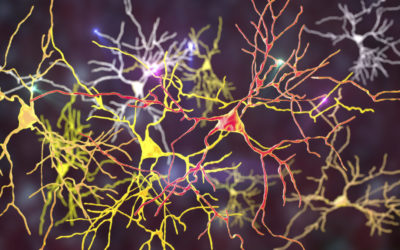Different areas of the brain are associated with empathy – this new research shows how brain regions synchronise to induce empathic responses.

The Amazing Impact Of Reaching Out To Your Old Friends
Quick Hits
Daily brief research updates from the cognitive sciences

A few weeks ago a friend I hadn’t seen for about 10 years sent me a message and asked if I had time to meet up. I was elated. “Sure,” I immediately messaged back, “when and where?!”
It was a surprise, but a really pleasant surprise, I was excited, elated, and thoroughly enjoyed seeing him again, catching up on all the latest news and reminiscing on old times. We probably all know that. And this is precisely what a group of researchers found out led by Peggy Liu in a study published by the American Psychological Association.
But the interesting thing is not that we enjoy reconnecting with old friends is that there are different perceptions. Liu et al. ran series of experiments to judge how people felt being reached out to and found that:
- Those reaching out significantly underestimated the positive impact
- Those being reached out to really appreciated being reached out to
- The greater the surprise the greater the impact
- The greater the previous connection the greater the appreciation
This is important because having lived in different places and also knowing a lot of people who have moved to different places it is easy to lose touch but also to feel trepidation at contacting old friends. This shows that you should do it. Those surprise contacts are really appreciated – and both of you will reap the benefits of this.
Of course, we also know that social connections are very good for mental and physical health so this also shouldn’t be underestimated and though this is not the same as having good social connections in everyday life, this does give a personal boost to mood and satisfaction.
So, next time you remember an old friend, just reach out to them, I am sure it will be appreciated, and according to this research, a lot more than you might think at first!

Andy Habermacher
Andy is author of leading brains Review, Neuroleadership, and multiple other books. He has been intensively involved in writing and research into neuroleadership and is considered one of Europe’s leading experts. He is also a well-known public speaker, speaking on the brain and human behaviour.
Andy is also a masters athlete (middle distance running) and competes regularly at international competitions (and holds a few national records in his age category).
Reference
Liu, Peggy J., SoYon Rim, Lauren Min, and Kate E. Min.
The Surprise of Reaching Out: Appreciated More than We Think.
Journal of Personality and Social Psychology (Forthcoming), 2022
DOI: 10.1037/pspi0000402
More Quick Hits
Developing Self Control in Children
Surprising Discovery on the Social Brain
Different areas of the brain are associated with empathy – this new research shows how brain regions synchronise to induce empathic responses.
How Emotional Satisfaction (not “Happiness”) Improves Students’ Grades
Different areas of the brain are associated with empathy – this new research shows how brain regions synchronise to induce empathic responses.
The Little Known Brain Cells that Help You Stay Awake and Keep Your Brain Active
Different areas of the brain are associated with empathy – this new research shows how brain regions synchronise to induce empathic responses.
Unfair! Brain Circuit for Fair Rewards Identified
Different areas of the brain are associated with empathy – this new research shows how brain regions synchronise to induce empathic responses.
Brain Cells of Males and Females Respond Differently to Stress
Different areas of the brain are associated with empathy – this new research shows how brain regions synchronise to induce empathic responses.













